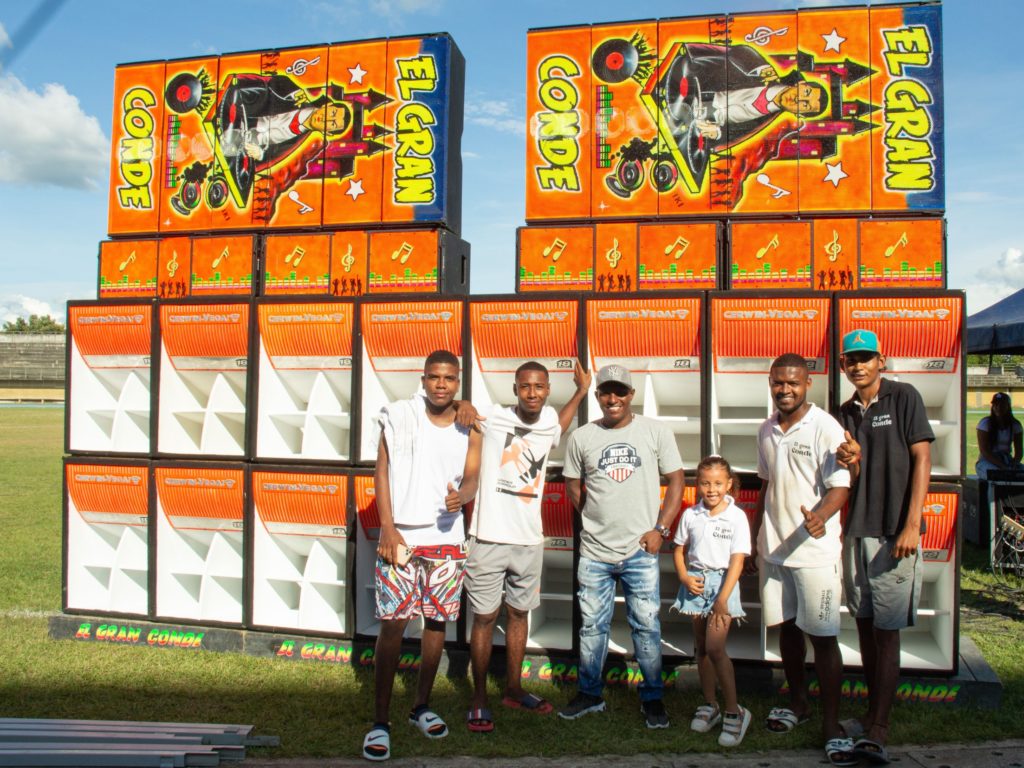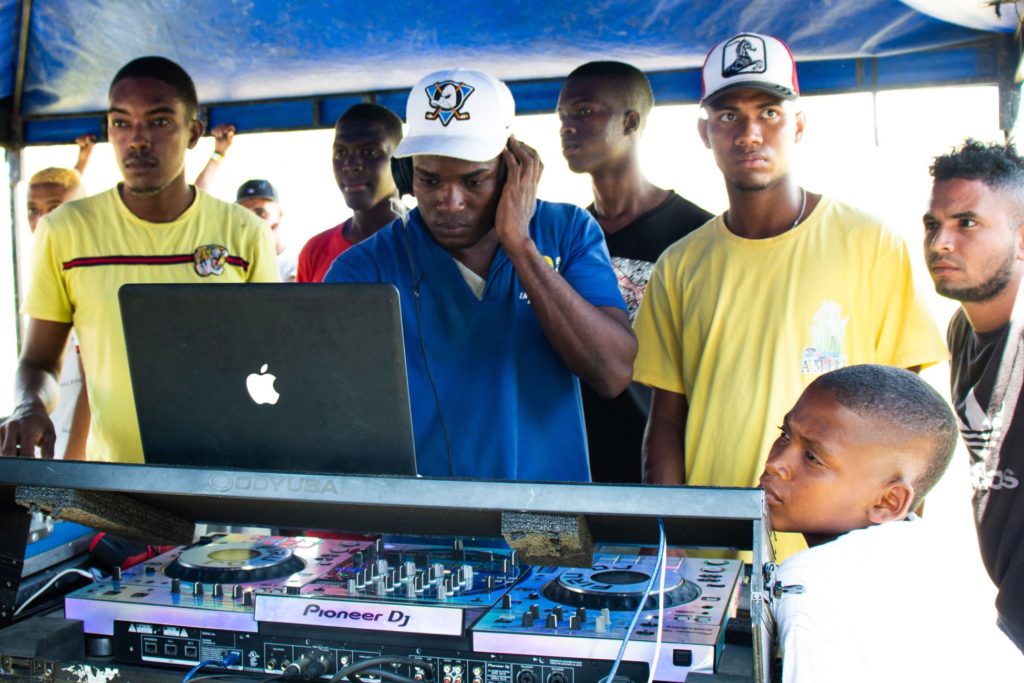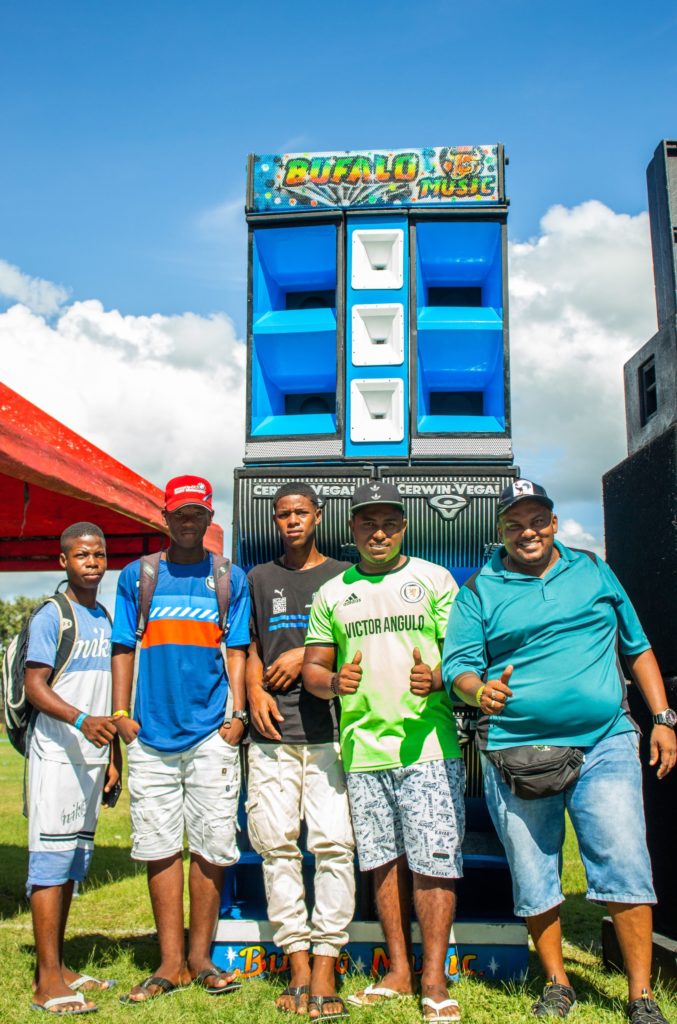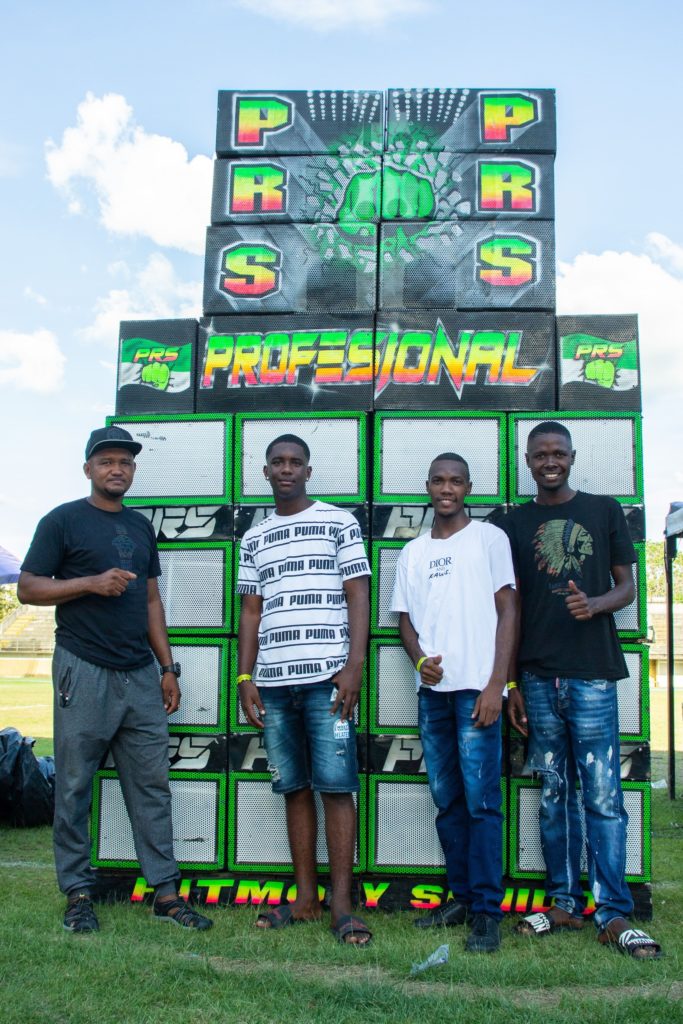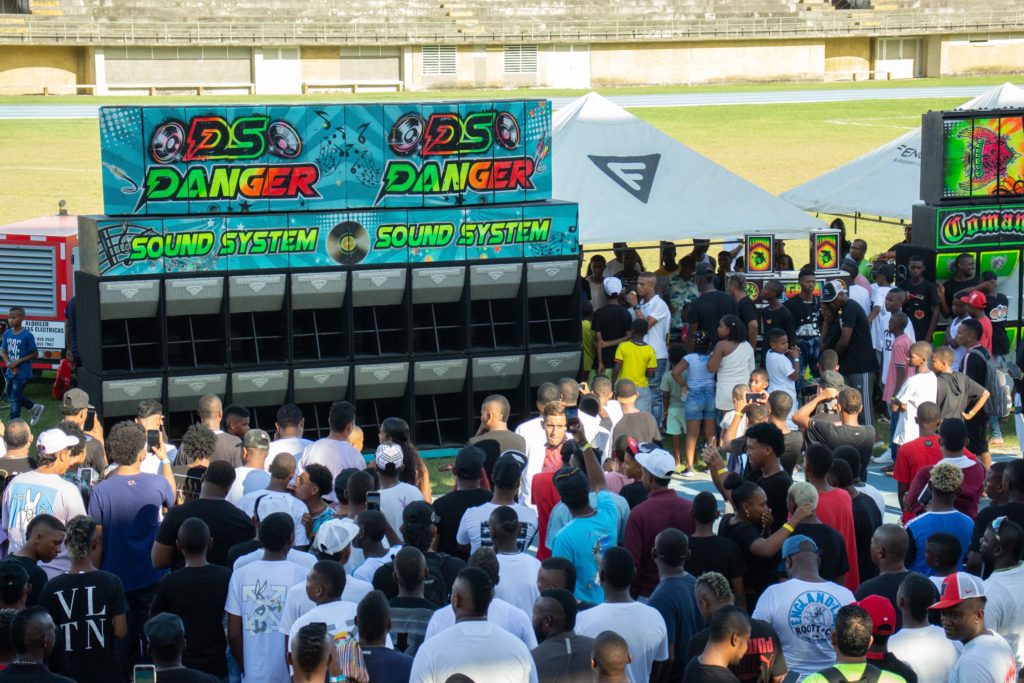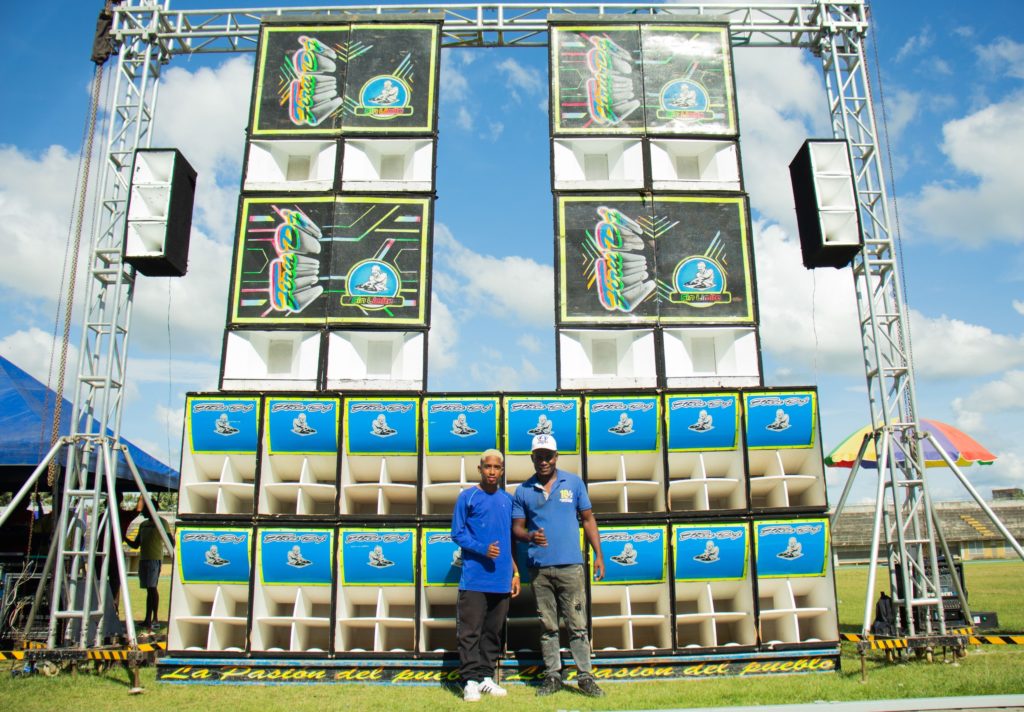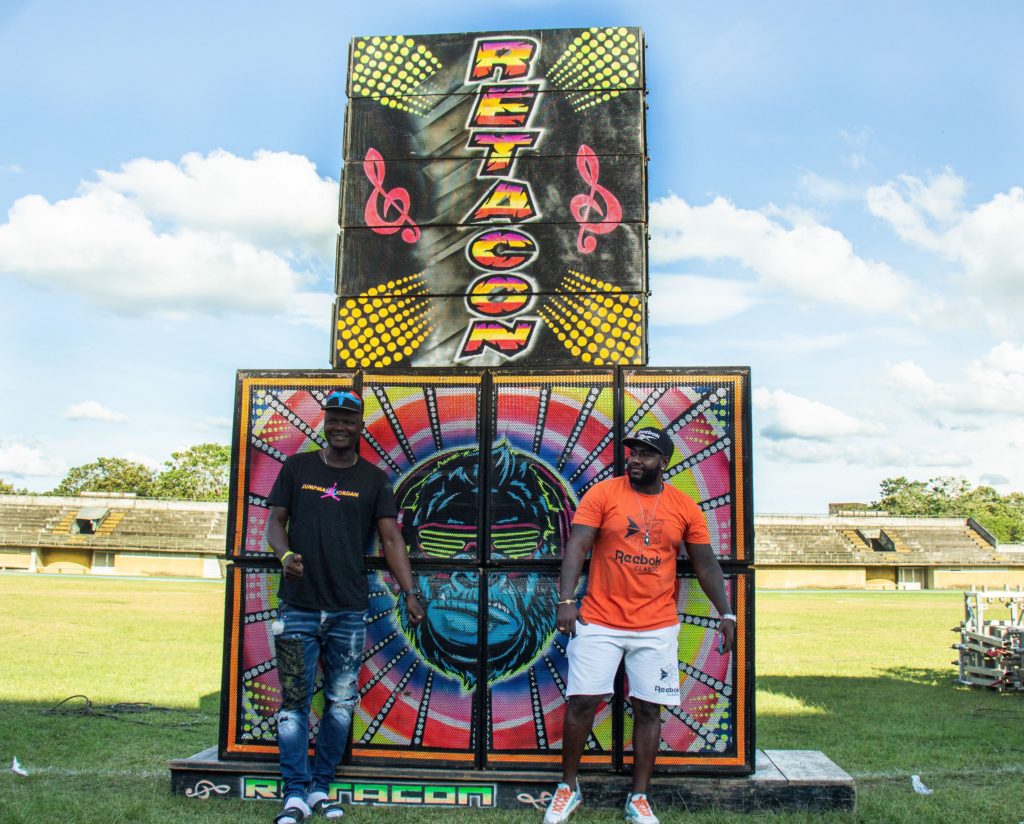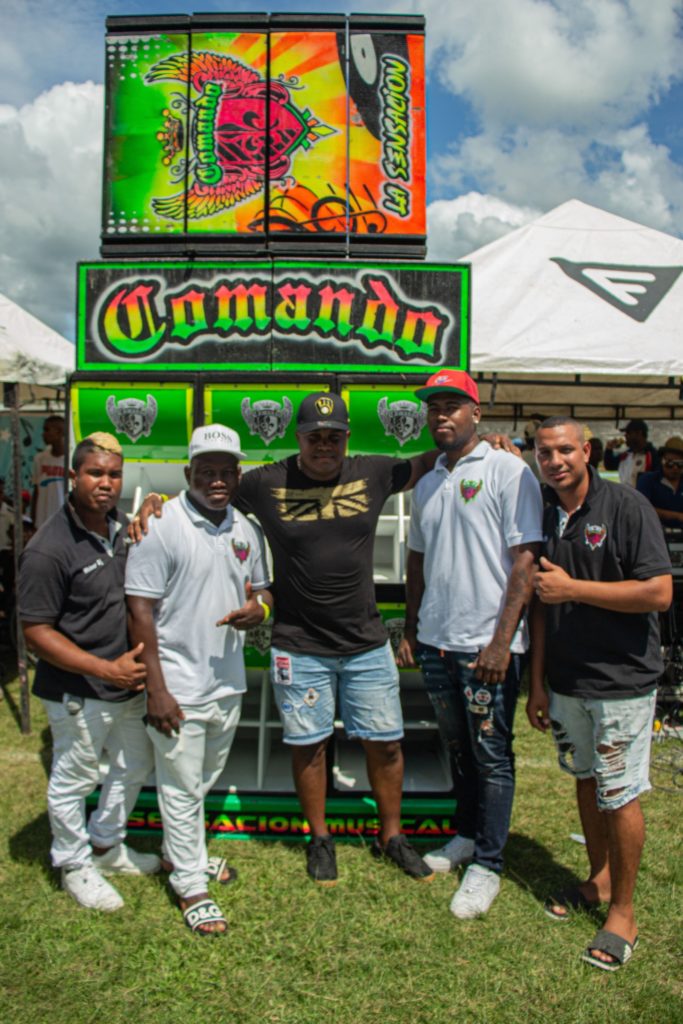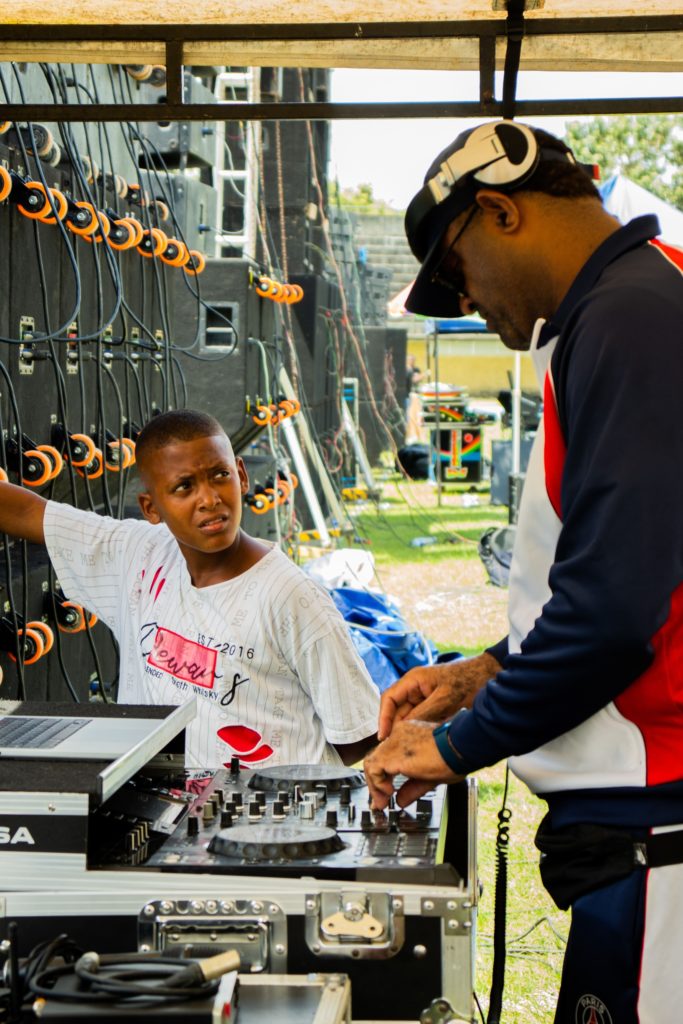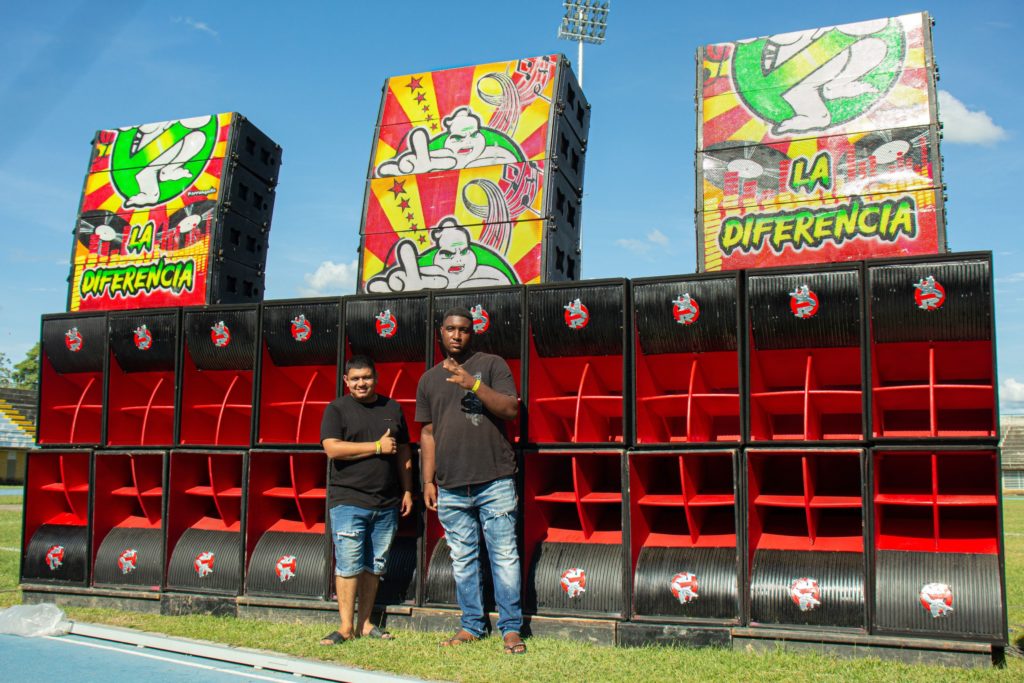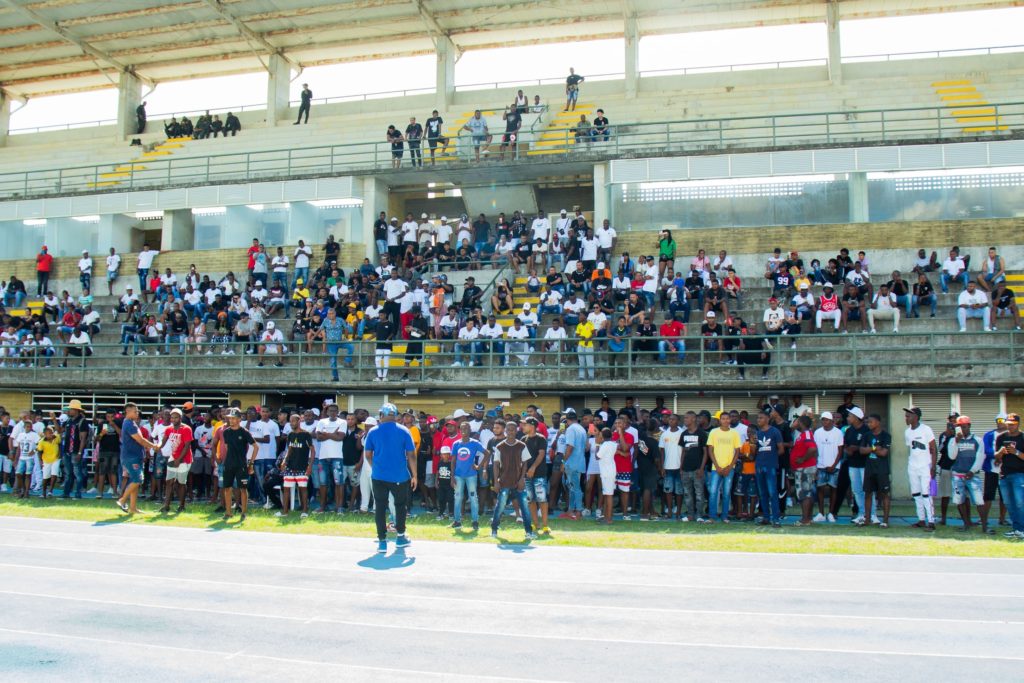Playing with Purpose in the Port District of Turbo
This blog is the second iteration in a series of photo essays documenting the ongoing activities carried out by local forces in the Colombian region of Urabà with the purpose of preserving, nurturing and enhancing the local picotera culture which has been heavily affected by structural violence and government repression. Acknowledging the social and pedagogical value of the cultural practice of picós and gaining support and respect from local institutions and authorities is key not only to the survival of the culture but also for the wellbeing of the local communities. SST is proud to be able to offer a platform to amplify this absolutely relevant work and to offer some support towards consolidating the archiving of the sonic culture of Urabà. We’d like to express our gratitude to guest blogger Miladis Córdoba Rivas, the Urabá Sound System collective and our collaborators from El Gran Latido sound system (Bogotà) for their untiring effort in promoting and preserving SST culture in Colombia.
Text by Miladis Córdoba Rivas
Images courtesy of Urabá Sound System, Fundasevida and Mesa de Reconciliación, Conviencia y Paz Urabá, Bajo Atrato – Darién.
The effort culminated in the second Picotero Gathering: Playing with Purpose, held on the 25th of September, 2022 in the JJ Trelles Stadium in the Turbo district. The gathering focused on a picó exhibition as a pedagogical initiative that highlighted the cultural, social, and dialogical potential of picotera culture, in the framework of consensual agreements between local and institutional authorities and the sound system practitioners and professionals of Urabá.
Following the Bishop’s opening speech, the picós and their respective crews were welcomed. Fifteen picós were in attendance: El Gran Conde, El Retacón, Masterali, El Bendecito Music, El Comando, El Gran Tiburón, Danger Music, Triple C, Fredy Music, Firu DJ, El Gran DJ, El Profesional, Búfalo Music, Dilanthony, and El Aletoso.
The event continued the process that began on March 8, 2021, when a partnership between Fundación Mi Sangre, FUNDASEVIDA, the Truth Commission, the International Organization for Migration (OIM), El Gran Latido sound system, and Guache organized a picotera/sound system session to celebrate International Women’s Rights Day. The event, predominantly led by women, was supported by El Gran Latido sound system, who traveled from Bogotá to contribute to the initiative. The 8th of March event generated experiences and networks that eventually converged in the First Picotero Gathering, entitled Urabá Sound System: Sounding with a Purpose, in July 2021, which has been described in this previous blog.
It is the sons and daughters of those who endured systemic violence and dispossession who have championed picotera and sound system culture as a tool for resistance and protest against the armed conflict. This cultural practice fosters unity, the curation of sonic memoirs, and the celebration of corporeal diversity through African rhythms.
With this favourable convergence it was eventually possible to start a conversation about making picotero culture part of the official cultural heritage of the Urabá region. This builds on the understanding that this culture represents a space for the nurturing and development of local identities, and a focal point for the reconstruction of roots, heritage, memory, and ancestral legacies.
It is also worth mentioning that the ways this process has been carried out had a positive impact on the community. Fights during picó sessions have dwindled almost to the point of fully disappearing since picó MCs and attendees have established agreements to take care of the spaces of the dances in the pursuit of peaceful coexistence. This has become the basis for a process of reconciliation, intensifying actions and territorial activities of social mobilisation with the LGBTQ and female population.
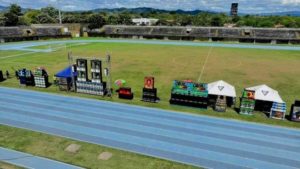
The series of events Picotero Gathering: Sounding with a Purpose has seen a third iteration in November 2022, in the context of the November festivities in the Turbo District in Urabà. This will be documented in a next blog.
Miladis Córdoba Rivas is a public administrator at the Escuela Superior de Administración Pública ESAP (Colombia). She has professional experience in working with women, LGTBQ populations, Afro and indigenous rural communities, particularly in Urabà. Her work is focused towards contributing to the reconstruction of the social fabric, defence of human rights and peace-building.

